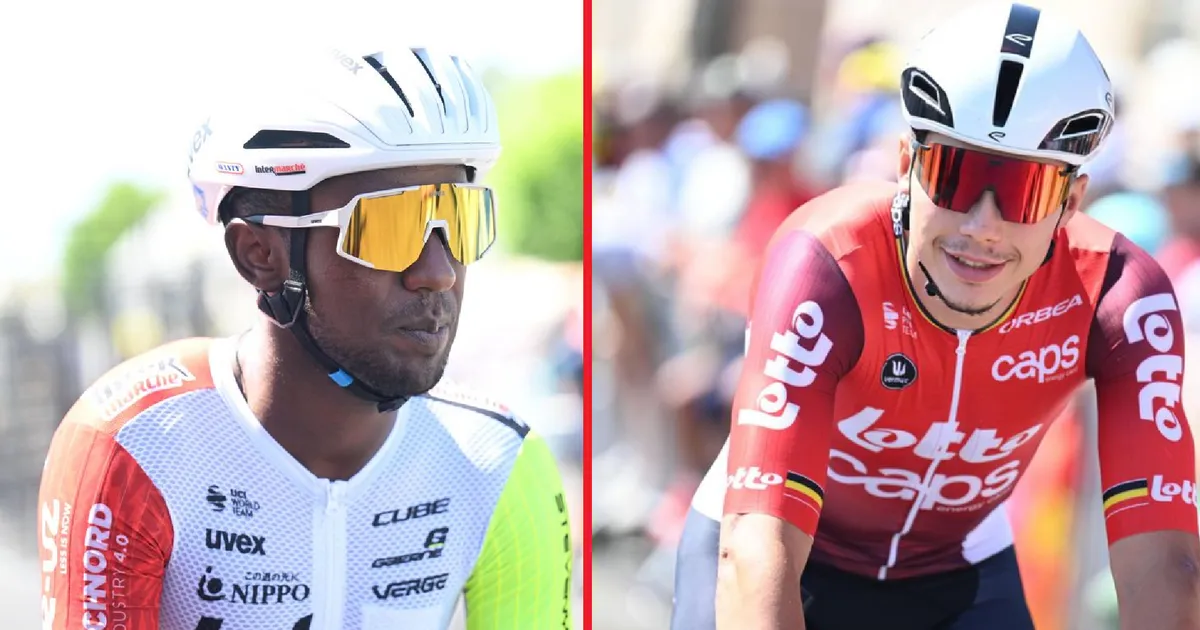The proposed merger between Lotto and Intermarché-Wanty is expected to be officially announced in the coming days. Yet, with the October 15 deadline set by the Union Cycliste Internationale (UCI) for the submission of license applications for the 2026 season approaching, uncertainties remain. Departures, financial challenges, and an unclear future for several riders signal that the project could be contentious.
The recent resignation of Stéphane Heulot, CEO of Lotto, less than two weeks ago, has already sent shockwaves through the Belgian structure. Over the past weekend, nine staff members were reportedly laid off. According to Het Nieuwsblad, those affected included chief doctor Milan Holvoet, soigneur Vincent Monserez, and mechanics Nick Mondelaers and Jeanick Verstraete.
Het Laatste Nieuws additionally reported the departures of another mechanic and soigneur, the commercial director, the marketing manager, and a logistics employee. These layoffs came as a surprise to many, given that staff had been reassured only weeks earlier that their positions were secure.
New management begins to take shapeDespite the upheaval, plans for the new organization are starting to emerge. As Cyclismactu reveals, current Intermarché-Wanty general manager Jean-François Bourlart is expected to assume the same role in the future Lotto-Intermarché team. The positions of performance manager and sporting director would go to Aike Viesebeek (Intermarché) and Kurt Van de Wouwer (Lotto), respectively.The new team’s license application has reportedly already been submitted to the UCI. However, several issues remain unresolved, including a €2.5 million debt inherited from Intermarché-Wanty, which could lower the ambitions of the new team.Riders left in limbo and the Girmay questionOn the sporting side, the merged entity will be limited to 30 riders, while currently 38 cyclists hold contracts: 20 with Intermarché and 18 with Lotto. Lotto riders such as Arnaud De Lie, Lennert Van Eetvelt, and Jarno Widar are reportedly the most secure, as their current team is considered “the paying agent,” meaning their contracts will automatically continue.
Intermarché riders, by contrast, must wait to learn their future. Some will be integrated into the new team, while others will need to find alternative contracts, and they still don’t know what their situation will be next year, which gives them less and less room of manoeuvre in case they need to find a new team.
The case of Biniam Girmay has attracted particular attention. While discussions have reportedly taken place with Israel-Premier Tech, no agreement has yet been finalized. Het Laatste Nieuws notes that the Eritrean rider’s entourage “is not opposed to the merger project,” but Le Soir suggests that a departure is “likely.”

